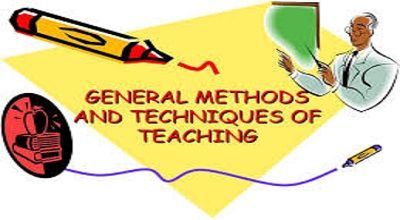General Methods of Teaching
General methods of teaching refer to the various approaches and strategies that educators use to facilitate learning and instruction in the classroom. These methods can vary based on the subject matter, the age group of the students, and the educational goals. Here are some common general methods of teaching:
Lecture Method:
- Involves the teacher presenting information to the students in a spoken format.
- Often used for conveying factual information, theories, or concepts.
Discussion Method:
- Encourages students to actively participate in the learning process by expressing their thoughts and opinions.
- Promotes critical thinking and communication skills.
Demonstration Method:
- Involves showing students how to do something through visual aids, models, or actual performance.
- Commonly used in science labs, art classes, and vocational training.
Collaborative Learning:
- Emphasizes group work and cooperative activities where students work together to achieve common learning goals.
- Fosters teamwork, communication, and problem-solving skills.
Problem-Based Learning (PBL):
- Involves presenting students with real-world problems or scenarios to solve.
- Encourages critical thinking, problem-solving, and the application of knowledge.
Project-Based Learning (PBL):
- Similar to PBL, it focuses on students completing a project that demonstrates their understanding of a particular concept or topic.
- Promotes creativity, research skills, and teamwork.
Experiential Learning:
- Learning through hands-on experiences, field trips, or real-world applications.
- Enhances understanding by allowing students to engage with the subject matter nearly.
Interactive Teaching:
- It involves using technology, multimedia, and interactive activities to engage students in the learning process.
- Includes tools like educational games, simulations, and online platforms.
Socratic Method:
- Based on asking and answering questions to stimulate critical thinking and illuminate ideas,
- Often used in law schools and philosophy classes.
Flipped Classroom:
- The reversal of traditional teaching methods, where students review instructional content at home and engage in hands-on activities or discussions during class time.
- Capitalizes on technology for content delivery.
Inquiry-Based Learning:
- Encourages students to ask questions, explore topics, and develop their understanding through self-directed investigations.
- Fosters curiosity and independent learning.
Direct Instruction:
- Involves explicit teaching of skills or concepts with a focus on teacher-led activities and clear learning objectives.
- Commonly used for foundational skills and knowledge.
Note
Effective teachers often use a combination of these methods, adapting their approach based on the needs of their students and the learning objectives of the curriculum.
